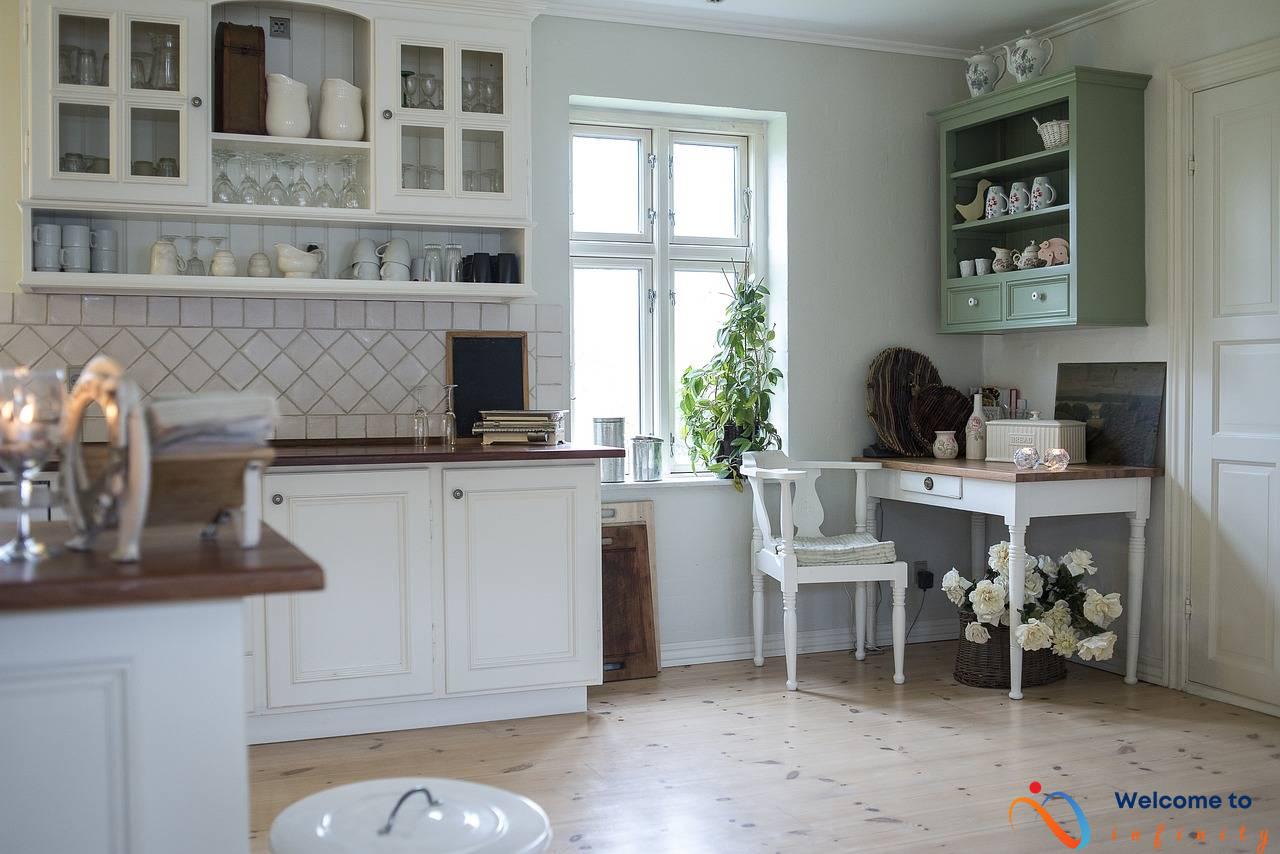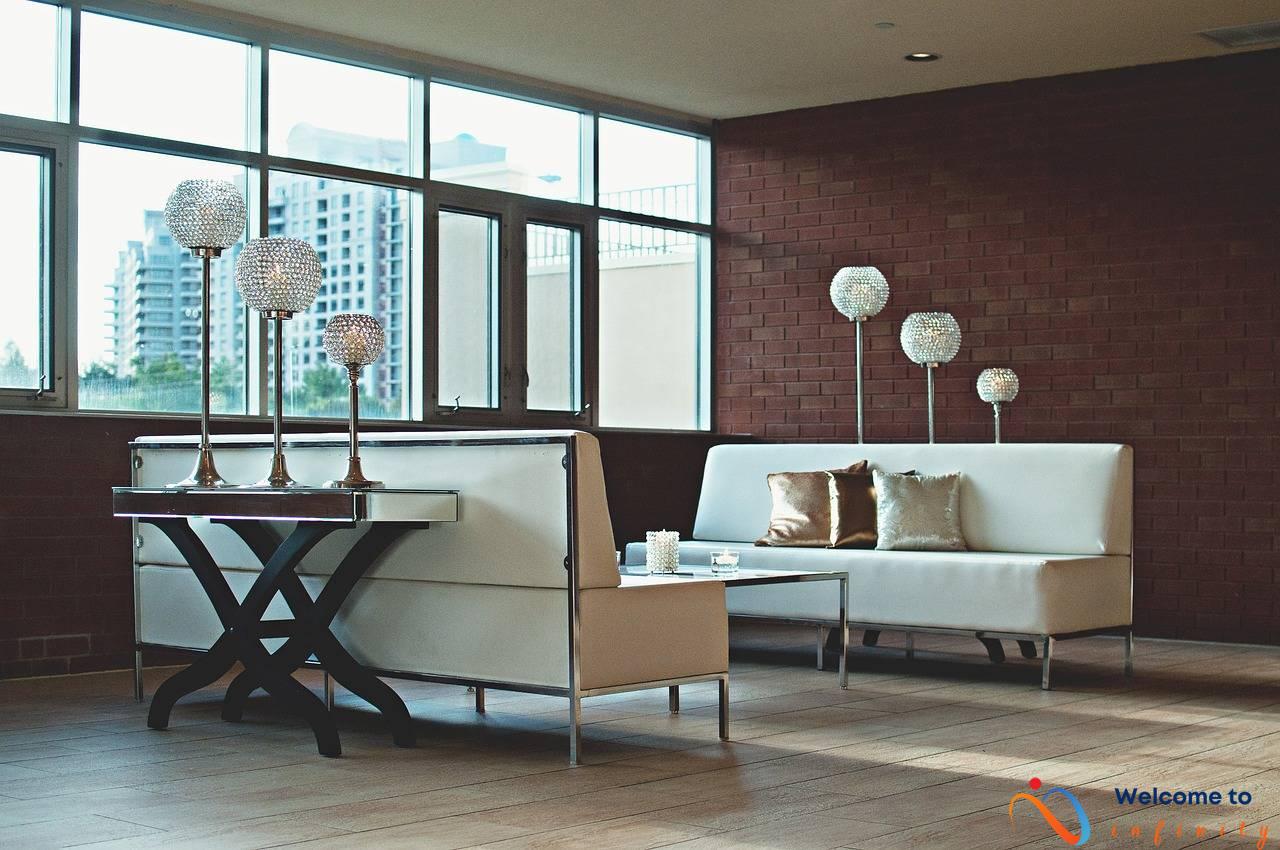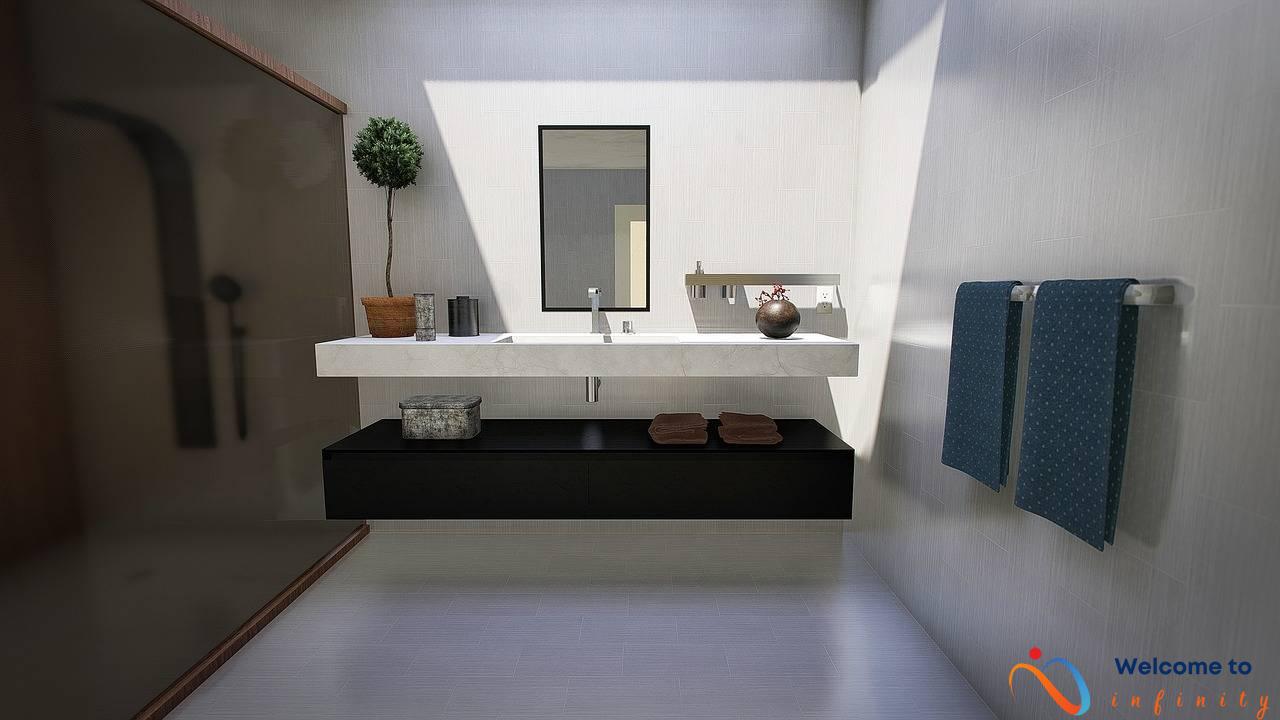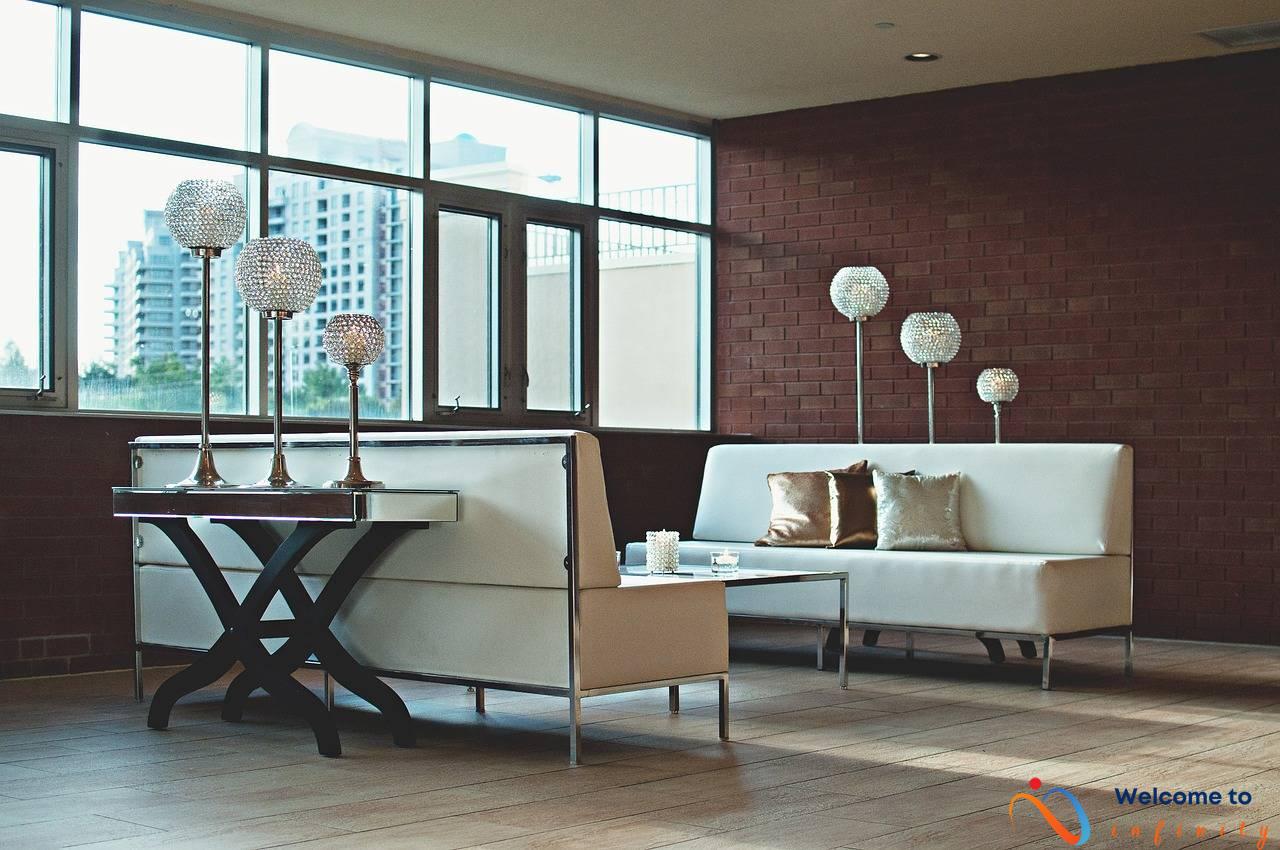If you're looking for a way to enhance the peaceful and restful ambiance of your bedroom, consider adding some greenery! That's right, bringing plants into your bedroom can have numerous benefits for your sleep quality and overall well-being.
One of the main advantages of having plants in your bedroom is improving air quality. Plants have the natural ability to purify the air and reduce toxins, creating a healthier living space for you to relax in.
Additionally, plants can serve as natural stress relievers, helping to reduce anxiety and promote relaxation. The calming effects of plants on the mind and body can lead to better sleep quality and overall well-being.
If you're looking for an extra touch of relaxation, consider incorporating fragrant plants for aromatherapy benefits. Certain plants, such as lavender and jasmine, have been shown to enhance relaxation and promote better sleep.
Of course, not all plants are suitable for the bedroom environment. When selecting plants, consider factors such as lighting, maintenance, and their growing habits. Some plants that are great for the bedroom include the snake plant, peace lily, and spider plant.
To ensure maximum benefits, proper placement of plants is key. Place plants near windows or in areas with natural light, and avoid placing them too close to your sleeping area. By properly placing plants in your bedroom, you can create a peaceful and restful environment perfect for a good night's sleep.
Adding plants to your bedroom not only helps to promote relaxation and better sleep, but can also serve as a decorative element. By incorporating carefully selected plants, you can enhance the overall look of your bedroom space.
Finally, plants can serve as a calming alternative to electronic devices that can disrupt sleep. By minimizing electromagnetic radiation, plants can further enhance the quality of sleep in your bedroom.
In conclusion, adding plants to your bedroom retreat can create a more relaxing and restful environment, leading to better sleep quality and overall well-being. So go ahead, add some greenery to your space and reap the benefits!
Improved Air Quality
If you're looking for ways to improve the air quality in your bedroom, adding some greenery may be a simple solution. Plants have been shown to purify the air by removing toxins and pollutants, leaving you with a healthier living space.
Here are a few ways plants can help improve air quality in your bedroom:
- Plants absorb carbon dioxide and release oxygen, which improves air circulation and quality.
- Some plants have been found to reduce levels of formaldehyde, benzene, and other harmful chemicals commonly found in indoor environments.
- Certain plants, such as snake plants and peace lilies, have been shown to be particularly effective at removing toxins from the air.
Not only do plants help purify the air, but they can also add to the overall aesthetic of your bedroom. Adding a pop of greenery to a room can provide a natural and calming touch, creating a more relaxing environment.
So, if you're looking for a way to improve the air quality in your bedroom and create a more serene space, consider incorporating some plants into your decor.
Natural Stress Relievers
If you are looking for ways to reduce stress and improve your sleep quality, then adding plants to your bedroom retreat may be the perfect solution. Plants are not only visually appealing but have been shown to have a calming effect on both the mind and body.
Studies have shown that the mere presence of plants can lead to reduced stress levels and improved mood. Greenery is associated with nature and the outdoors, which can create a sense of calm and relaxation that is otherwise hard to come by in our busy lives.
Plants have also been shown to improve air quality, which can have a direct impact on our physical and mental health. Improved air quality leads to better breathing, which in turn can improve our sleep quality. Good sleep is essential for reducing stress and promoting overall mental well-being.
- Plants such as lavender and jasmine can also provide natural aromatherapy benefits, helping to further relax the mind and body. The scent of these plants has been shown to promote calmness and improve sleep quality.
- It's essential to choose the right type of plants for your bedroom. Plants that require minimal sunlight and maintenance are ideal for a bedroom environment. Some great options include spider plants, peace lilies, and snake plants.
- Proper plant placement is also critical, as plants should not block windows or create clutter in the bedroom. Instead, place plants on shelves or in hanging pots to create a visually appealing but peaceful atmosphere.
In short, adding greenery to your bedroom retreat can provide a natural and effective way to lower stress levels and improve sleep quality. Not only do plants add an aesthetically pleasing element, but they can have a profound impact on our physical and mental well-being.
Aromatherapy Benefits
Apart from adding beauty to your bedroom, plants can also provide numerous benefits, including aromatherapy benefits. Certain plants, such as lavender and jasmine, are well-known for their relaxing properties, which can help to promote better sleep. These fragrant plants release essential oils that have a calming effect on the mind and body.
The scent of lavender, for instance, has been found to reduce anxiety and stress levels, making it an excellent choice for those struggling with sleep issues. Jasmine, on the other hand, can help to improve the quality of sleep by enhancing the duration of REM sleep, the stage of sleep responsible for dreaming. Additionally, the scent of these fragrant plants can help to give a sense of calmness and tranquility, creating a peaceful atmosphere in the bedroom.
If you're looking to add fragrant plants to your bedroom, consider placing them near your bed or on a nightstand. This will allow you to enjoy the aromatherapy benefits while you sleep. You can also experiment with different plant varieties to find the one that suits your preferences the most. However, it's important to note that not all plants are suitable for indoor or bedroom environments, so be sure to do your research before making a purchase.
- Lavender – reduces anxiety and stress, enhances relaxation
- Jasmine – improves the quality of sleep and enhances dreams
Overall, adding fragrant plants to your bedroom is an excellent way to enhance relaxation and promote better sleep. While certain plants are known for their aromatherapy benefits, it's important to choose plants that suit your lifestyle and bedroom environment. You'll be amazed at the positive impact they can have on your well-being.
Best Plant Choices
If you're looking to add some natural greenery to your bedroom, it's important to choose plants that thrive in indoor environments. Here are some of the best plant choices for the bedroom:
The snake plant, also known as mother-in-law's tongue, is a popular choice for the bedroom due to its ability to purify the air. These low-maintenance plants require minimal sunlight and watering, making them the perfect choice for those who aren't green thumbs.
Spider plants are known for their ability to remove harmful toxins from the air, such as formaldehyde, benzene, and xylene. They are also low maintenance and can thrive in a variety of lighting conditions. Plus, their long, flowing leaves add a decorative touch to any bedroom.
English ivy is a great choice for anyone looking to add a touch of nature to their bedroom. This fast-growing plant can thrive in low light and is known for its ability to reduce airborne mold and mildew. Just make sure to keep it out of reach of pets, as it can be toxic when ingested.
Lavender is a fragrant herb that is known for its relaxing properties. Adding a small lavender plant to your bedroom can help promote relaxation and improve sleep quality. Plus, it adds a pop of color and fragrance to your space.
Pothos plants are ideal for the bedroom due to their low maintenance and ability to purify the air. They are also known for their trailing vines, which can add a decorative touch to any bedroom. Just make sure to keep them out of reach of pets, as they are toxic when ingested.
Overall, when choosing plants for your bedroom, make sure to consider factors such as lighting, maintenance, and growing habits. By choosing the right plants, you can create a peaceful and restful environment that promotes relaxation and restful sleep.
Placement Tips
When it comes to placing plants in a bedroom, it's crucial to choose locations that enhance the overall décor and contribute to a restful environment. Follow these tips for proper plant placement in your bedroom retreat.
Firstly, consider the lighting in your bedroom. Some plants prefer bright, direct sunlight, while others thrive in less light. Choose plants that are suited to the amount of natural light your bedroom receives.
Secondly, make sure to choose plants that are easy to maintain. You don't want to spend hours every week tending to high-maintenance plants. Consider getting plants such as Snake Plant, Aloe vera, and Peace Lily, which are easy to care for.
Thirdly, consider the size of your plants and how they'll fit into your bedroom space. You don't want plants to take up too much floor space and create clutter. Instead, think vertically and consider hanging plants or placing them on shelves.
Lastly, be mindful of the placement of your plants in proximity to your bed. Plants that release oxygen, such as Sansevieria, can have positive effects on sleep. But some plants release carbon dioxide at night, and it can be dangerous to place them too close to your bed. Spider Plant and Aloe Vera are ideal for the bedroom because they release oxygen during the night.
By following these simple placement tips, you can create a peaceful and restful bedroom environment with the help of plants.
Decorative Function
Not only are plants a great way to purify the air and reduce stress levels, but they are also a natural way to enhance the overall look of a bedroom space. Plants come in a wide variety of sizes, shapes, and colors, making them an ideal decorative addition to any bedroom.
One creative way to showcase your plants is by using hanging planters or placing them on shelves. Hanging planters are an excellent option for small bedrooms, as they do not take up valuable floor space. Alternatively, you can opt for plants with tall and slender stems like bamboo, which can be placed in the corner of the room to add a touch of greenery.
If you're looking to add a pop of color, flowering plants like orchids, roses or lilies can do the trick and make your bedroom space more charming.
Another way to decorate with plants is by combining them with other natural elements like stones, shells, and wood. You can create a minimalist look using a simple terrarium or opt for an eye-catching centerpiece with a large fern placed in a statement pot. Just make sure to choose plants that match the overall aesthetic of your bedroom, be it modern, rustic, or bohemian style.
By adding plants to your bedroom, not only will you improve air quality and reduce stress levels, but you will enhance the overall look of your space in a natural and affordable way.
Alternative to Electronics
In this day and age, it's common for most people to have electronic devices in their bedrooms. However, studies show that the blue light emitted by these devices can adversely affect sleep. This is because the blue light signals the brain to be alert and awake, which can make it difficult to fall asleep. That's where plants come in as a great alternative!
Not only do plants have no harmful effects on sleep, but they also have been proven to have calming effects on the mind and body. It's been discovered that just the simple act of caring for a plant can reduce stress levels and increase relaxation. Incorporating plants into your bedroom decor can be a great way to unwind after a long day and get better quality sleep.
Beyond serving as a simple decoration, plants are an excellent natural sleep aid. Having a plant nearby can help to create a relaxing atmosphere, making it much easier to fall asleep. By placing plants around your room, you can replace the negative effects of electronics with a calming and stress-free environment.
Some great plants to consider for your bedroom are Lavender, Jasmine, and Aloe Vera. Lavender and Jasmine both produce calming scents that have been shown to enhance relaxation and reduce anxiety. Aloe Vera is a great option because it releases oxygen at night, which can improve sleep quality and refresh the air in the room.
By implementing plants into your bedroom decor, you can create a relaxing and inviting space that's conducive to getting quality sleep. Its numerous benefits make it a wise investment for your overall well-being.
Minimizing Electromagnetic Radiation
Electromagnetic radiation is a form of energy that is produced by electronic devices. It can disrupt sleep, leading to a range of health issues, including fatigue and insomnia. Fortunately, plants can help to minimize electromagnetic radiation levels in the bedroom.
Most plants are good at absorbing electromagnetic radiation, thanks to their natural abilities to counteract negative energy. Studies have shown that plants such as ficus, snake plant, and spider plant are effective in absorbing electromagnetic radiation in the environment.
In addition to absorbing electromagnetic radiation, plants also provide a calming presence in the bedroom. By reducing stress levels, plants can help promote better quality sleep. They also add a decorative element, enhancing the overall appearance of the bedroom space.
- Some plants that are particularly effective include:
- Ficus
- Snake Plant
- Spider Plant
- Jasmine
- Lavender
It is important to note that the placement of plants is crucial for maximum effect. Placing plants near electronic devices can help absorb electromagnetic radiation, but they should not be too close to the bed as they can release carbon dioxide during the night. A good rule of thumb is to keep plants at least a few feet away from the bed, and to avoid overcrowding the room with too many plants.
Overall, incorporating plants into the bedroom can help to reduce electromagnetic radiation levels and improve overall sleep quality. It is a natural and affordable solution that is well worth considering for anyone looking to promote a more restful environment.












